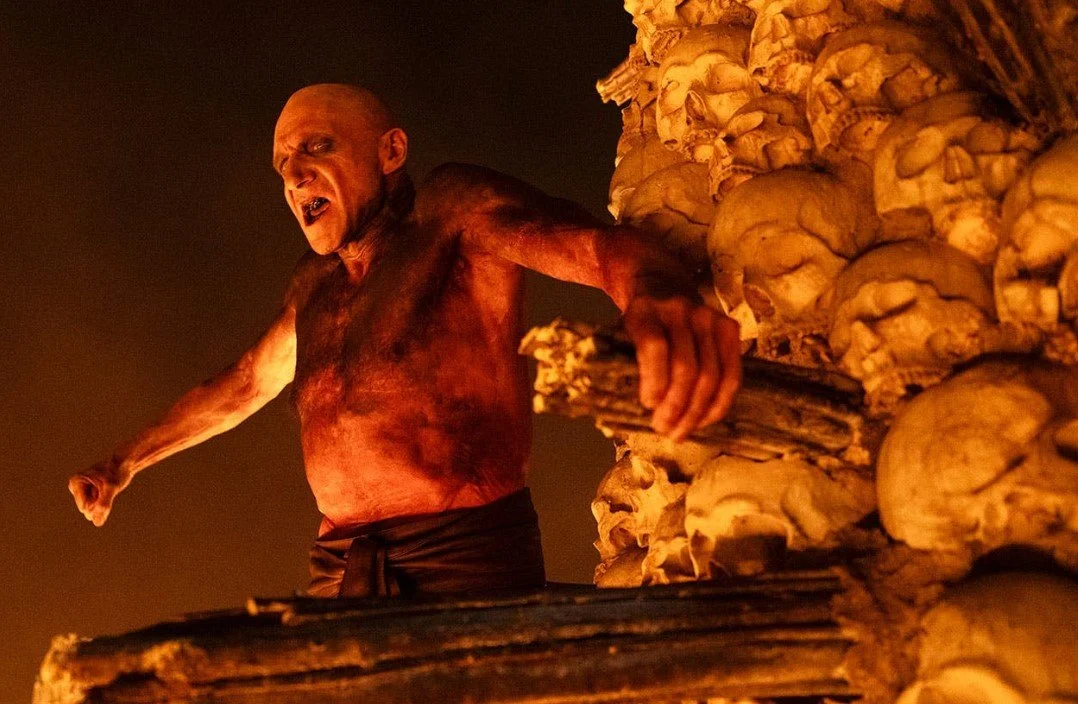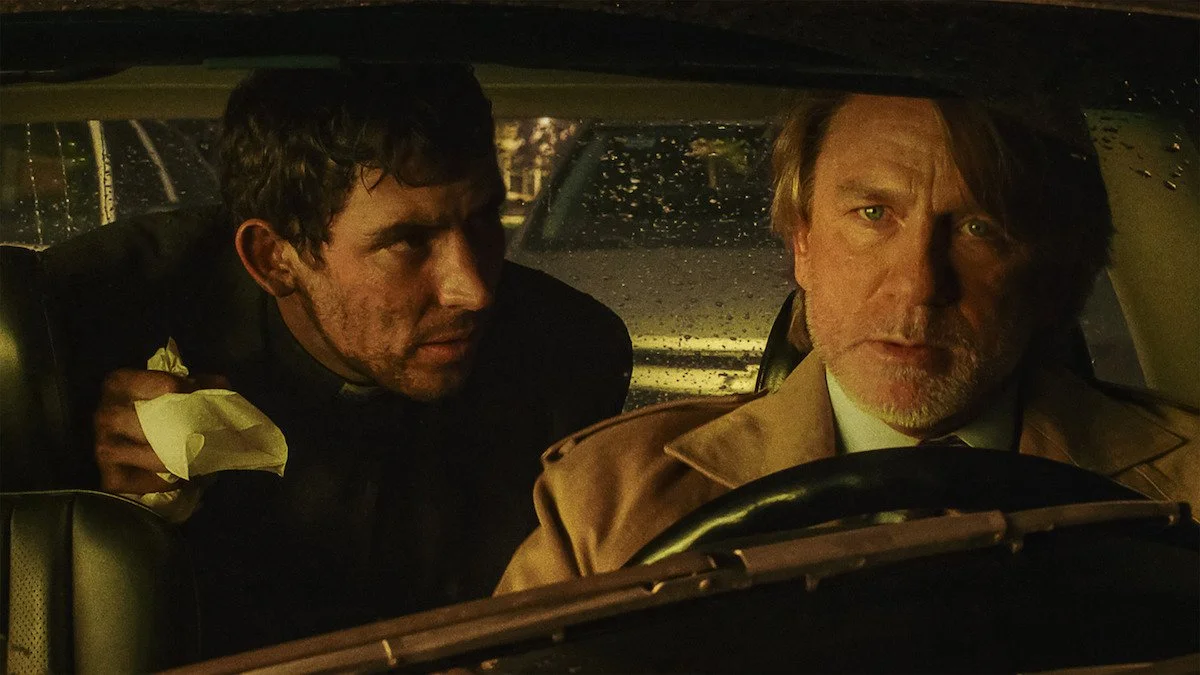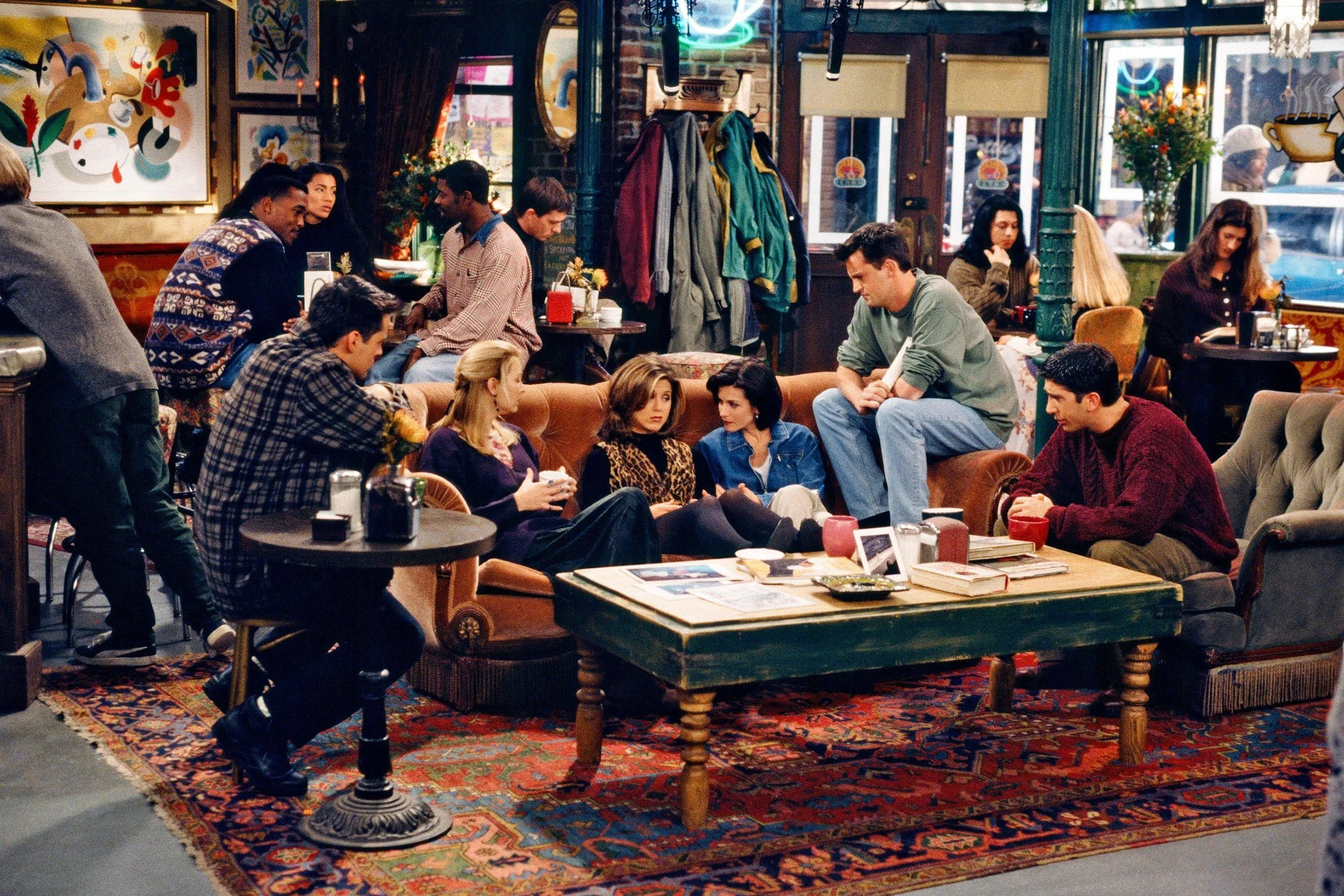‘The Long Walk’ REVIEW: Bloody Footprints To (False) Progress
‘The Long Walk’ REVIEW: Bloody Footprints To (False) Progress
Peter McVries (David Jonsson) and Ray Garraty (Cooper Hoffman) march on | Still from the film’s official trailer
In the year 1979, Stephen King’s novel ‘The Long Walk’ was published under the pseudonym Richard Bachman, and was actually written a decade prior when King was in college. The book contained an immediately attention-grabbing premise in its bleakness: every year through ballot, a dystopic America holds the titular Long Walk, where groups of young boys must travel on feet for as long as they could at a certain speed limit, and if one of them goes below the limit more than three times or violates certain rules of the game, he gets his ‘ticket’ through a bullet in the head. Only one of them could be allowed to survive the competition with no finish line in sight, the winner getting ‘anything he wants.’
In the years past the novel’s release, other stories with dystopian ‘games of death’ have also been written, some of which were also adapted into popular films. Even through numerous other effective permutations within similar premises, the power of King’s novel continues to stay ever strong, even more so in today’s political climate wherein rugged individualism is furthered by fascistic structures for a facade of progress and patriotism. I have read the novel way back in Junior High School out of an early fascination with the ‘death game’ genre, and I found myself gripped in ways beyond King’s relentless genre mechanics. It was a very human story, in the ways that it shows the toll and extent of human duress under corrupt systems.
An adaptation of 'The Long Walk’ itself has been in the cards for a long time, with names such as George Romero, James Vanderbilt, André Øvredal, and Frank Darabont being attached to the project. In the end, it was director Francis Lawrence (The Hunger Games sequels, I Am Legend) and screenwriter JT Mollner (Strange Darling) who were able to see the difficult to film project (knowing the simplicity and physicality of its premise) come to fruition. What they are able to achieve with this film is nothing short of an emotionally taxing experience.
Thomas Curley (Roman Griffin Davis) hits his third warning | Still from the film’s official trailer
The story centers around Ray Garraty (Cooper Hoffman), who joins the Walk against the wishes of his overly concerned mother (Judy Greer). Driven by a singular wish in mind, he is determined to make it to the end to make it happen, while interacting with his fellow walkers, including one Peter McVries (David Jonsson). McVries immediately connects with Garraty, and forms a group he calls the ‘Musketeers’ along with two others: the amicable Art Baker (Tut Nyuot) and cocky Hank Olson (Ben Wang).
It is this central bond that serves as the heart of ‘The Long Walk’, as in spite of the inherent nightmare of its conceit, it manages to carve space for compassion and even humor. There are moments where the film leans toward light-hearted banter that serves well as both comedic relief, and meaningful character-building for its ensemble. Garraty and McVries in particular prove to be great anchors for the narrative, as both of their parallelling ideals get unravelled and deconstructed gradually as the walk goes on.
The duo’s development and shifts in mentality are born out of a deep longingness to find purpose in a harsh, oppressive, world. The questioning of whether this whole competition is actually worth being a part of beyond machismo-fueled propaganda, but the direction it points in urging people to treat their fellow man and how we respond to it, makes the Walk as equally a psychological battle as is a physical one. Mollner’s script manages to imbue these underlying threads not only within the two, but the rest of the cast as well, giving considerable depth even to those that don’t have the best first impression.
Which makes it all the more tense and heartbreaking when the casualties begin to inevitably pile up, as the film pulls no punches with the violence it displays. The toll the walk has on these boys both mentally and physically are presented with no sanitization, allowing the stakes to remain high. A key sequence in the second act involving a certain area is the closest thing the film has to a traditional ‘suspense’ setpiece, yet it is the brutal punctuations that happen before and after in conjunction with the character-building that was most gripping. Even with some of the lulls in-between the big gut-punches - a byproduct of its straight-ahead plot - the mix between melancholy and viscera still propels the narrative to its haunting, thorny final act. Where it ends might feel like an earned payoff, but it doesn’t mean that it is a clean one.
All of these strong points are on the foundation laid down by Francis Lawrence's steady hand. He has always done solid work with genre fare and he adapts more than well with the direness of King's original material by emphasizing the direction as both an environment and performer piece. Small details about the shifting locales add to the dreary atmosphere and world-building, and provide some vivid, unscrupulous imagery.
The boots that go marching on for as long as they could | Still from the film’s official trailer
On the other end, the film's reliance on the performances prove to be successful, as not only does everyone give a memorable, heartbreaking performance no matter how much their screentime was on their own (Judy Greer leaves her mark in her small scene count) but their rapport and dynamics with each other on the road feels natural and tangible enough to sell everything on the page, and Lawrence always keeps the camera on them for lengthy takes to really let it all summer in. Cooper Hoffman embodies Garraty's mounting frustration and desperation with the Walk and the people who run it compellingly with a humanist center, while David Jonsson's portrayal of McVries' desperate search for good in the face of helplessness is the perfect foil and what gives the movie its fragile, palpable soul.
‘The Long Walk’ is not an easy watch: its stripped down, unflinching viscera might perturb those looking for traditional narrative flow within a mainstream Lionsgate production. Stick with its punishing micro lens though, and the film's damaged, beating heart will never not seep through at any moment, as it holds on to the light of life even in the midst of the dark. While some fat could be trimmed around certain areas and book purists might have a split consensus on the direction the movie's divergences take, it still manages to resonate and do its source material justice with several of its subversions. It won't exactly leave you uplifted, but its purgatorial sentimentality will leave a mark all the same.
‘The Long Walk’ is now showing in Philippine cinemas through Pioneer Films.
















